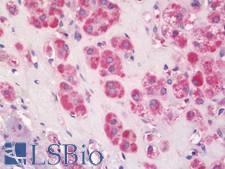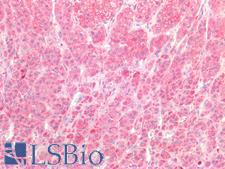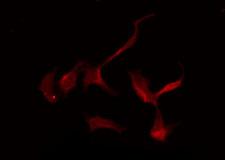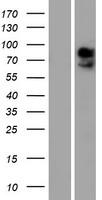order histories, retained contact details for faster checkout, review submissions, and special promotions.
Forgot password?
order histories, retained contact details for faster checkout, review submissions, and special promotions.
Locations
Orders Processing,
Shipping & Receiving,
Warehouse
2 Shaker Rd Suites
B001/B101
Shirley, MA 01464
Production Lab
Floor 6, Suite 620
20700 44th Avenue W
Lynnwood, WA 98036
Telephone Numbers
Tel: +1 (206) 374-1102
Fax: +1 (206) 577-4565
Contact Us
Additional Contact Details
order histories, retained contact details for faster checkout, review submissions, and special promotions.
Forgot password?
order histories, retained contact details for faster checkout, review submissions, and special promotions.
SLC16A2 / MCT8
solute carrier family 16, member 2 (thyroid hormone transporter)
SLC16A2 / MCT8 is an integral membrane protein that functions as a transporter of thyroid hormone. The encoded protein facilitates the cellular importation of thyroxine (T4), triiodothyronine (T3), reverse triiodothyronine (rT3) and diidothyronine (T2). This gene is expressed in many tissues and likely plays an important role in the development of the central nervous system. Loss of function mutations in this gene are associated with psychomotor retardation in males while females exhibit no neurological defects and more moderate thyroid-deficient phenotypes. This gene is subject to X-chromosome inactivation. Mutations in this gene are the cause of Allan-Herndon-Dudley syndrome.
| Gene Name: | solute carrier family 16, member 2 (thyroid hormone transporter) |
| Family/Subfamily: | Transporter , Monocarboxylic acid transporter |
| Synonyms: | SLC16A2, Allan-Herndon-Dudley syndrome, AHDS, DXS128E, DXS128, MCT8, Monocarboxylate transporter 7, Monocarboxylate transporter 8, MCT 7, MCT 8, MRX22, XPCT, MCT7 |
| Target Sequences: | NM_006517 NP_006508.2 P36021 |








If you do not find the reagent or information you require, please contact Customer.Support@LSBio.com to inquire about additional products in development.











